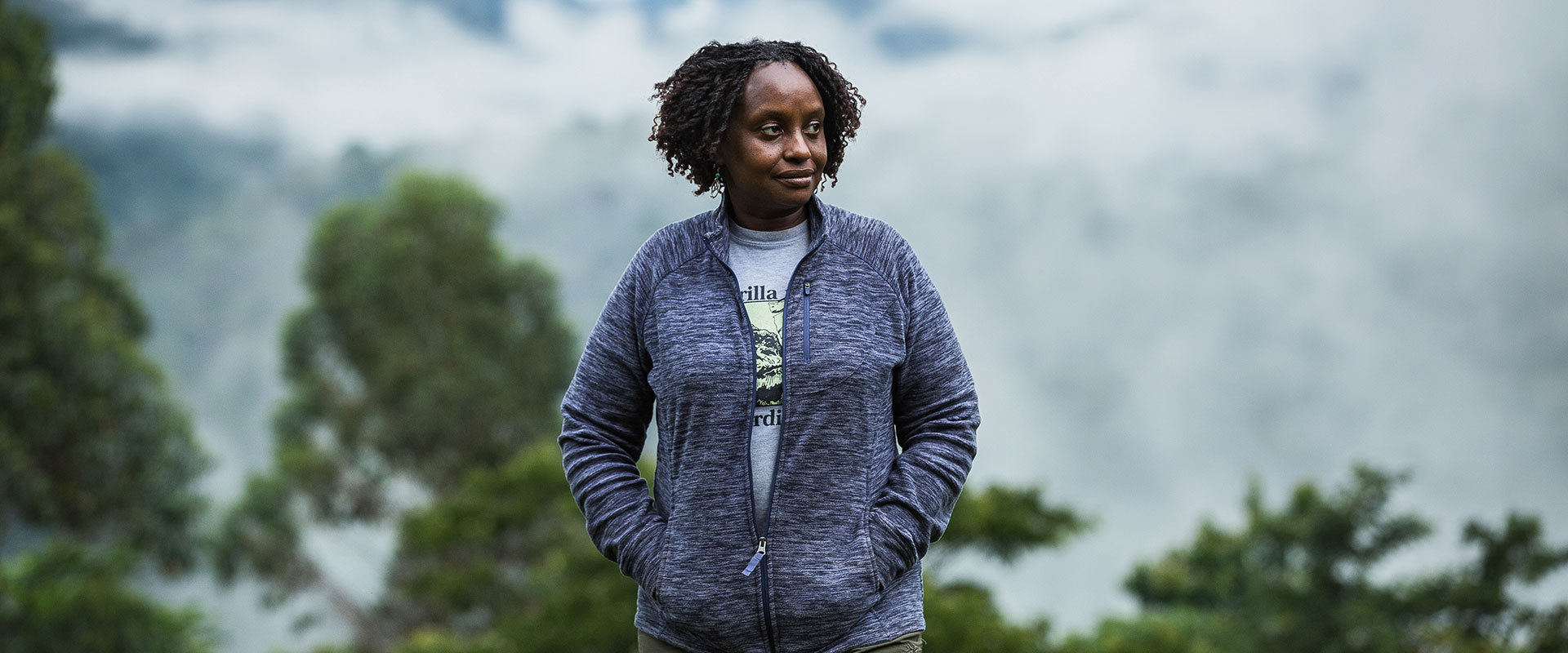Dr. Gladys Kalema-Zikusoka, Uganda’s first wildlife veterinarian, is Founder and CEO of the Conservation Through Public Health NGO and 2021 United Nations Environment Programme (UNEP) Champion of the Earth in Science and Innovation
![]() I first got engaged in conservation and the environment by setting up a high school wildlife club. I’d always wanted to be a vet because I liked animals and I grew up with lots of pets at home and I hated to see them suffering.
I first got engaged in conservation and the environment by setting up a high school wildlife club. I’d always wanted to be a vet because I liked animals and I grew up with lots of pets at home and I hated to see them suffering.
When I went to vet school in the United Kingdom, they allowed us to study an animal of your choice so I chose the chimpanzee … Then I worked with gorillas. Later, I got the opportunity to become the first vet for the Uganda Wildlife Authority – the government agency that manages the wildlife. At the time, there were no female rangers at all. But now, 25 years later, 20 per cent of the rangers are women. The wildlife vets in Africa and around the world were also almost all men, and most of the conservation NGOs were run by men.
We started our NGO in 2003 because people were making the gorillas sick and we realized we needed to improve human health, so we started engaging local leaders – half men, half women. We promoted community-based family planning in communities living around the park, to make sure they have manageable families so they don’t have to go into the forest to poach when their children are sick – they believe that bush meat is the only way to make their child better. When I looked at the women aged 15 and up, many were married off, so we decided to do couple peer-education, engaging women and men equally. We got the women more involved in conservation and natural resource management and the men more involved in health care and family planning.
Family planning was a solution because people were having more children than they wanted to. It was affecting women’s health, increasing poverty and preventing children from going to school. If they had 10 children, maybe half could go to school and they would prioritize the boys. And with more mouths to feed, they would go into the forest to collect firewood or to poach. … For women, [family planning] gave them more control over their lives, over their bodies. For men, it meant better balancing of the family budget. It became a win-win situation.
We also support women farmers by paying them better prices for their coffee, which the NGO sells to fund gorilla conservation. When we started, there were few women farmers, mostly widows. Having more female role models helps to break barriers, in whatever field it is. The only way that we can mitigate climate change is by engaging men and women and having just as many female as male leaders in conservation. If you don’t, you’re missing half of the puzzle and won’t be able to face things holistically and in a long-term way. Gender equality is essential for us to be able to mitigate climate change.
[As a female scientist], I’ve faced quite a number of challenges but some of the biggest were that people just don’t think that women and girls can do the same things as boys, like living in remote locations with few amenities or working with wild animals. People would express their concerns behind my back. I’m glad I didn’t know that earlier or it might have discouraged me. I just kept pushing on. … As a female leader, you need to take on leadership and be taken seriously. We need to work twice as hard as men. By the time we’re confident, it’s usually because we’re as good as or even better than men at something. Women have to be more confident in themselves.”
Veterinary scientist Dr. Gladys Kalema Zikusoka, 52, founded the Conservation Through Public Health NGO in 2003 and was appointed UNEP Champion of the Earth in Science and Innovation in 2021. Her work is directly related to many of the Sustainable Development Goals (SDGs), including SDG 3 on good health and well-being, in particular its target on ensuring access to family planning; SDG 13 on climate action, especially its target on improving education, awareness-raising and capacity on climate change mitigation; and SDG 15 on protecting, restoring and promoting the sustainable use of terrestrial ecosystems particularly its targets on sustainable forest management and action to end poaching.
The UN Environment Programme’s Champions of the Earth and the Young Champions of the Earth honour individuals, groups and organizations whose actions have a transformative impact on the environment. The annual Champions of the Earth award is the UN’s highest environmental honour. It recognizes outstanding leaders from government, civil society and the private sector.
